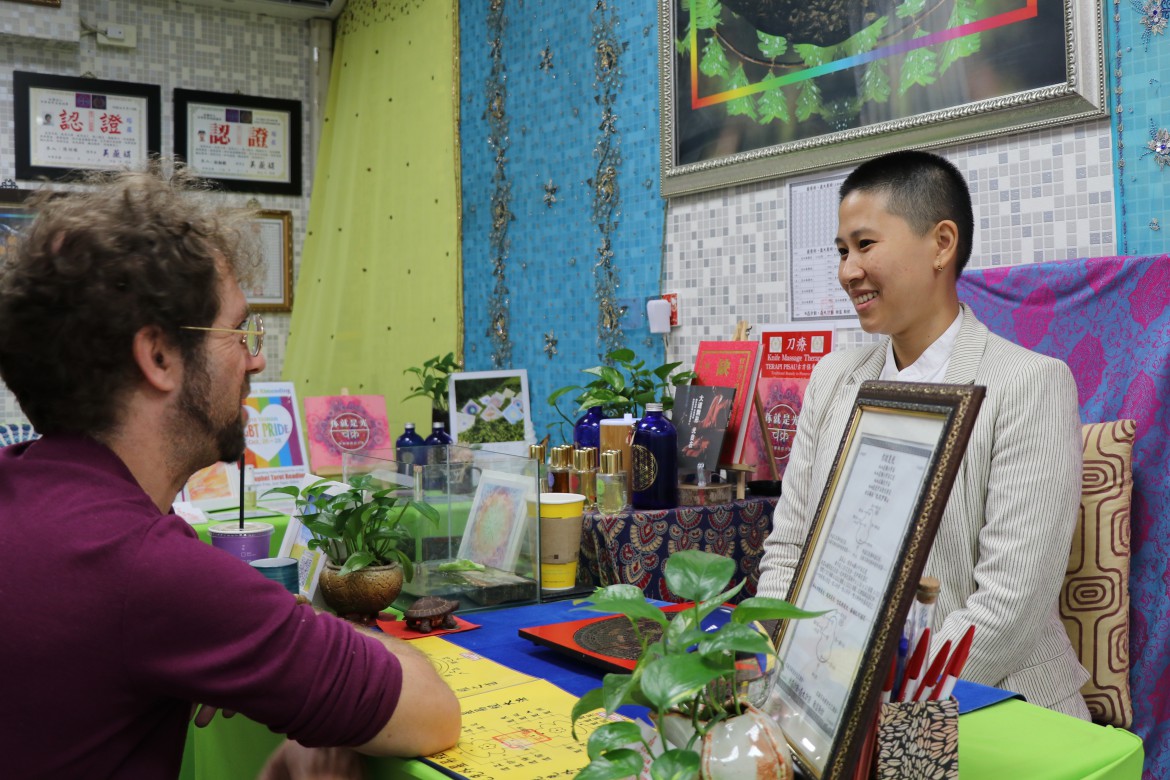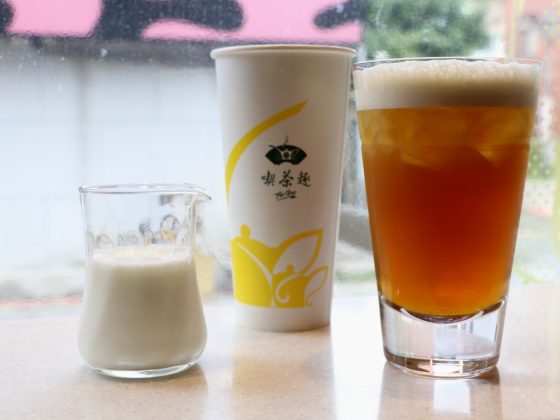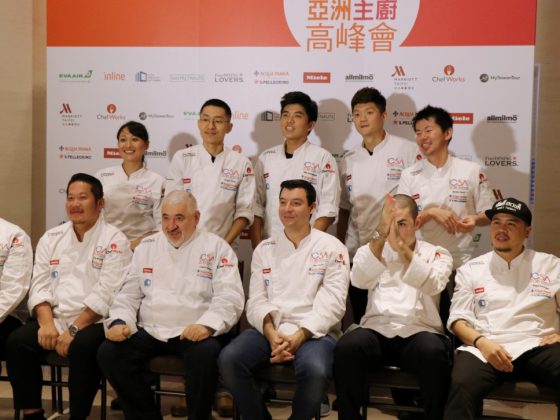Taipei continues to grow its reputation as a city of tolerance, equality, and diversity, welcoming visitors from the global LGBTQ community by the tens of thousands. One of the earliest spots in the city to fly the rainbow flag, announcing itself as a safe space for the LGBTQ community was Taipei’s Love Boat Shop.
Opened in the Shida university (National Taiwan Normal University) district in 2004, the store has since expanded its mission, becoming an international salon incorporating culture, tarot, I Ching divination, healing, and chakra workshops. It’s also expanded physically, opening up a satellite of sorts in the city’s Ximending neighborhood focusing solely on Tarot reading, I Ching divination and healing. Taiwan Scene spoke to Love Boat’s International Marketing Manager Olivia Wu at the team’s Ximending location, Light Program Red House. (Read more: Taipei Celebrates Our Pride)
TS: Olivia, tell us a bit about yourself.
O: I was born in Los Angeles, a place called Hacienda Heights. My parents still live in Southern California. As Taiwanese-Americans, they wanted me to learn basic Chinese, so I was in Taiwan until the age of 8 before moving to Los Angeles. When I was 24, I decided to move back to Taiwan on my own.
TS: So many young Taiwanese would consider living in LA the dream life. Yet you chose a very different path. Why did you come back to Taiwan?
O:Ten years ago, I was going through a time of self-searching, and I thought heading back to the place my family came from would be a logical next step in that journey. Looking back, I was searching for connection and groundedness, to find my place in the world. Taiwan has blossomed for me and I have found my roots here, so I feel a strong connection with Taiwan.
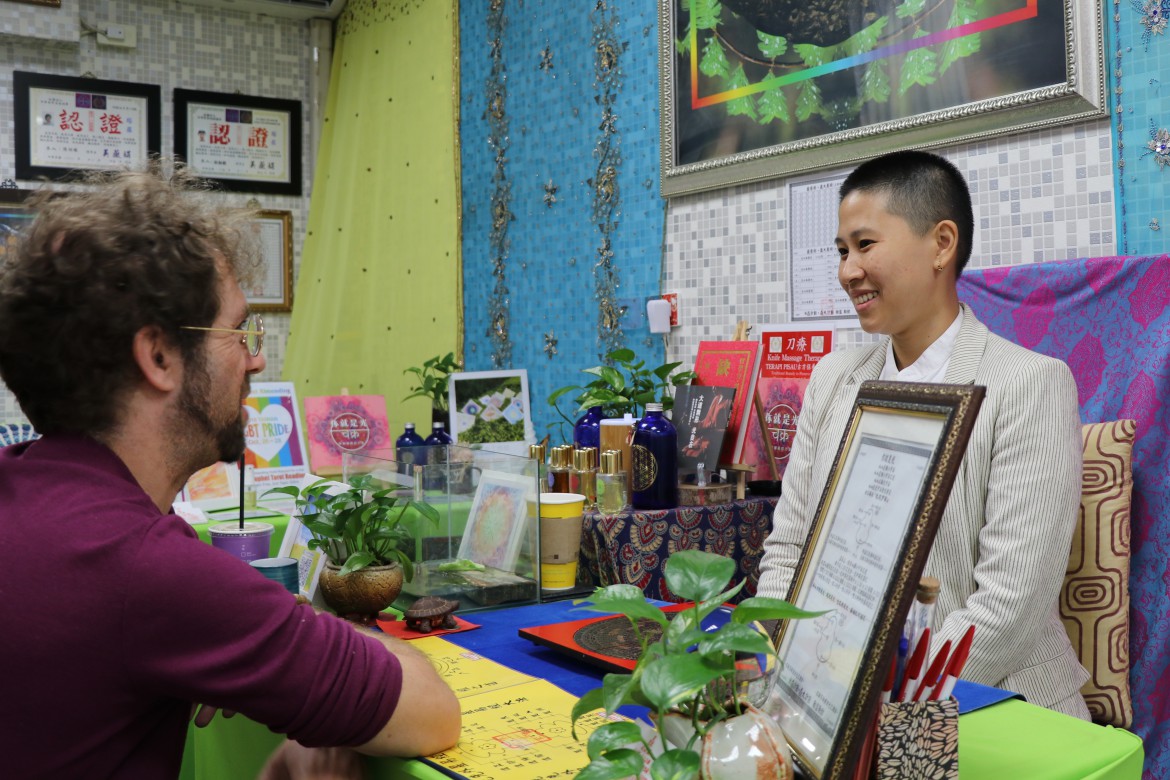
TS: Had you already come out to your parents by this point?
O: Yes. I first came out to my mom in a letter. I think it was three words. “I am gay.”
TS: That’s a short letter!
O:(Laughs). Yeah, a very short letter.
TS: How did she take it?
O: At first, there was a lot of emotion, a lot of confusing moments. I was 14, in middle school, and I felt that I needed a solid conversation with someone. It wasn’t until High School that I had my first girlfriend, and when I brought her home, that was kind of the point where my parents realized, yeah, it was true: I was gay.
TS: How did your parents take it when you brought home your first girlfriend?
O: My parents contacted her parents. They had a conference about it.
TS: Sounds like a very Taiwanese response. When you came here in 2008, did you find Love Boat or did Love Boat find you?
O: We found each other at a Love Boat partnering event. It felt as if our encounter was meant to be, and I’ve been working with Love Boat in various capacities ever since.
TS: Tell us a bit about Love Boat. It seems like their mission has evolved over the years from being a Lesbian fashion shop to being, well, more of a salon and healing space. How did this evolution take place?
O: Well, Love Boat is a safe space, so it’s natural that we got a lot of people who come to us for conversations that might be difficult to have elsewhere.
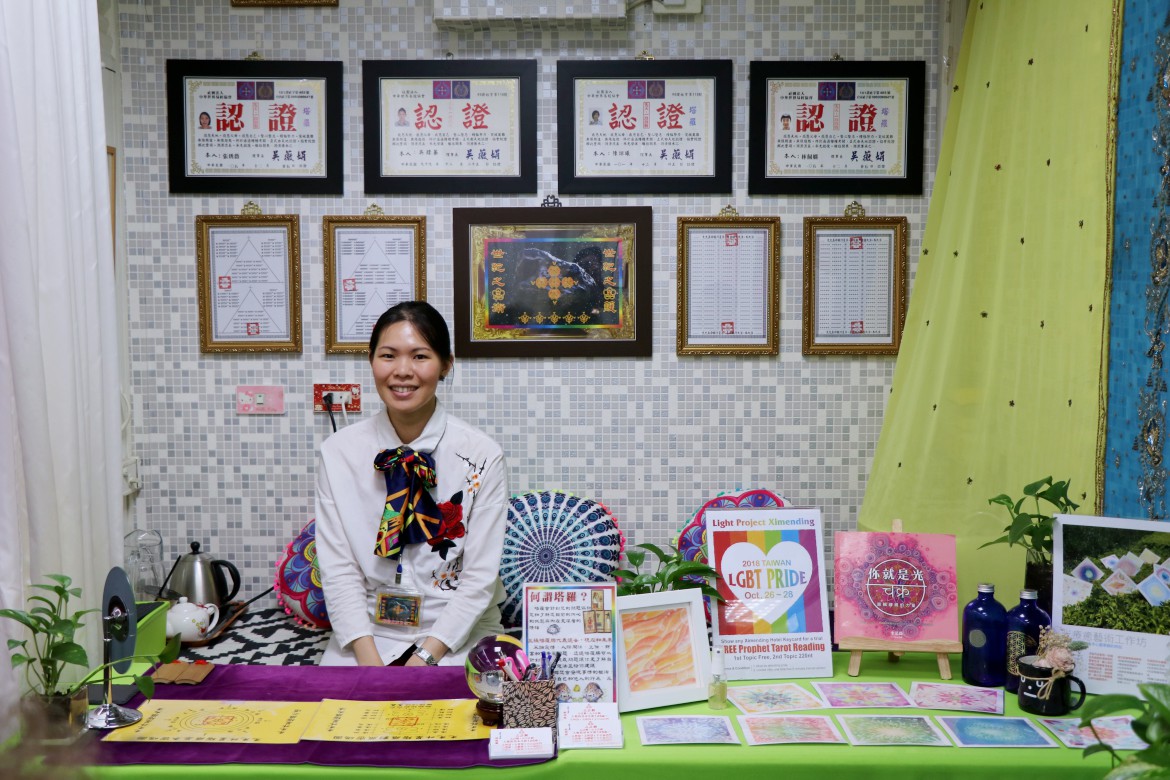
TS: Like what?
O: Oh, all sorts of issues. Love and relationships, coming out to families, identity issues, wanting to get more active in LGBTQ politics. I mean, there’s the tangible aspect, of course. People come to Love boat for items that they can use to provide a sense of comfort, to validate their identities. But even in the tangible aspect, its way more than just sex toys, androgynous clothing and PRIDE items. In the beginning, it was kind of like that, but the atmosphere has since grown to be less about sexual identity and more about embracing diversity.
TS: Could you give an example?
O: Sure. We’ve had Buddhist Nuns come into the shop to purchase binders to restrain their breasts. Definitely nothing sexual about that. And we have a lot of mothers bringing their daughters into the shop to purchase binders to wear during gym class as well.
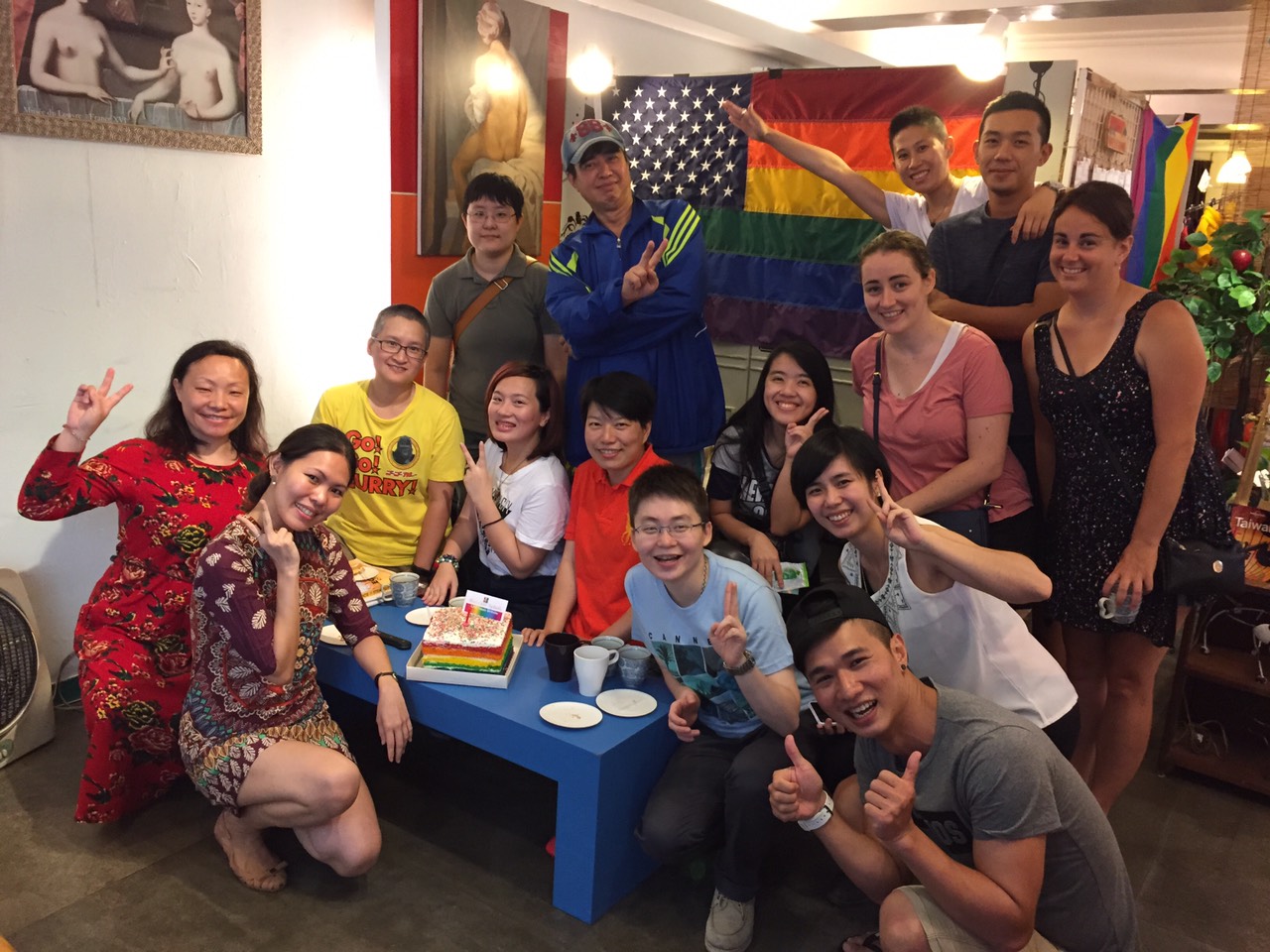
TS: What place do you think Love Boat has in Taiwan’s ongoing transformation into a more open and tolerant society?
O: We were interviewed by a Korean Magazine recently. I didn’t know what the title of the article was going to be, but it turned into something of a beautiful coincidence when the article came out under the title of Keep Taipei Free. I felt like they really nailed it, as Keeping Taipei Free is exactly what we’ve been working towards. The Freedom Path means embracing our identities, freeing ourselves from labels and restriction in our hearts…allowing individuals to shine with their own light and live with love. This is what I do here at Light Program Red House.
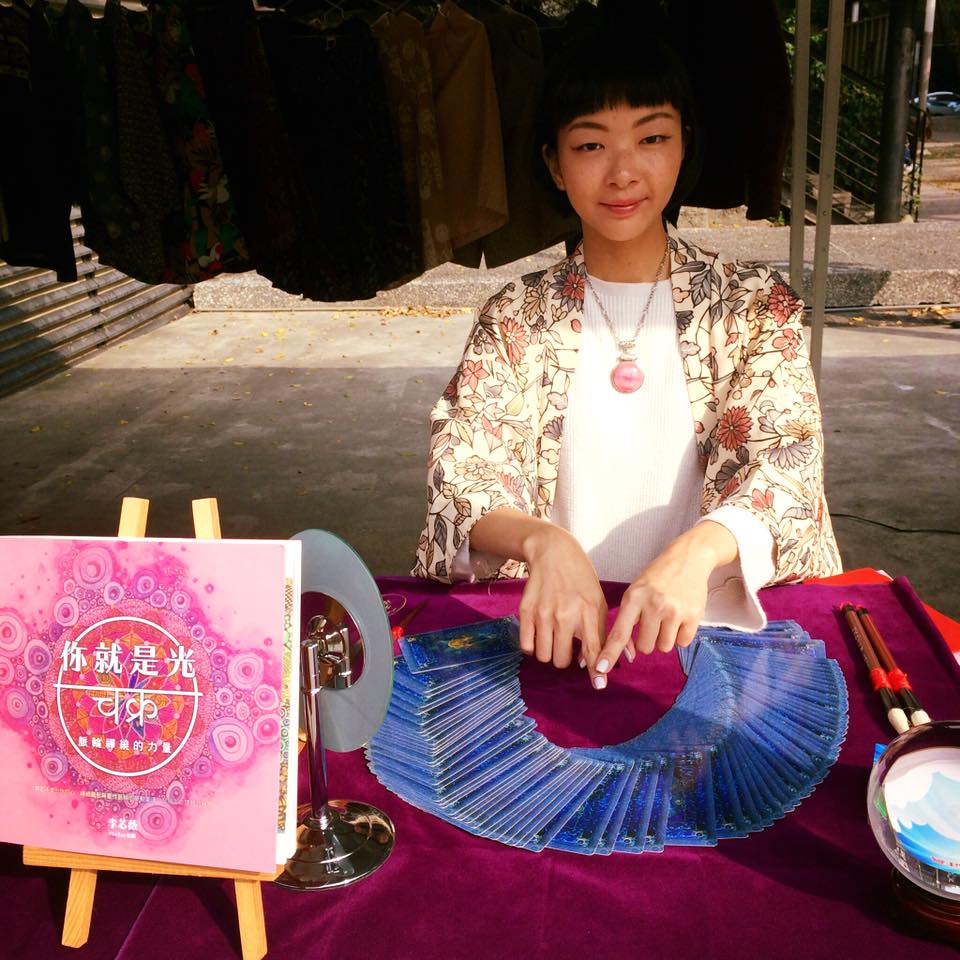
TS: It seems there’s been a bit of “two steps forward, one step back” insofar as marriage equality in Taiwan is concerned. Would you agree with this assessment?
O: Yeah, I think this is a fair assessment. The issue of marriage equality is going to be voted on this November, and it’s definitely an emotionally triggering issue for some people.
TS: We seem to be living through a very triggering time in general, not just in Taiwan but pretty much everywhere.
O: Yes, we’ve had a surge of people coming in with different kinds of collective negativity, much of which has been caused by global circumstances. Bottled up emotions, fear, and doubts that requires wholesome care and attention. We work with healing through chakras, as chakras and emotions are interconnected; these areas of wellness can affect how we feel about ourselves, and our self-confidence. Healing the chakra centers means discovering ourselves in a new light.
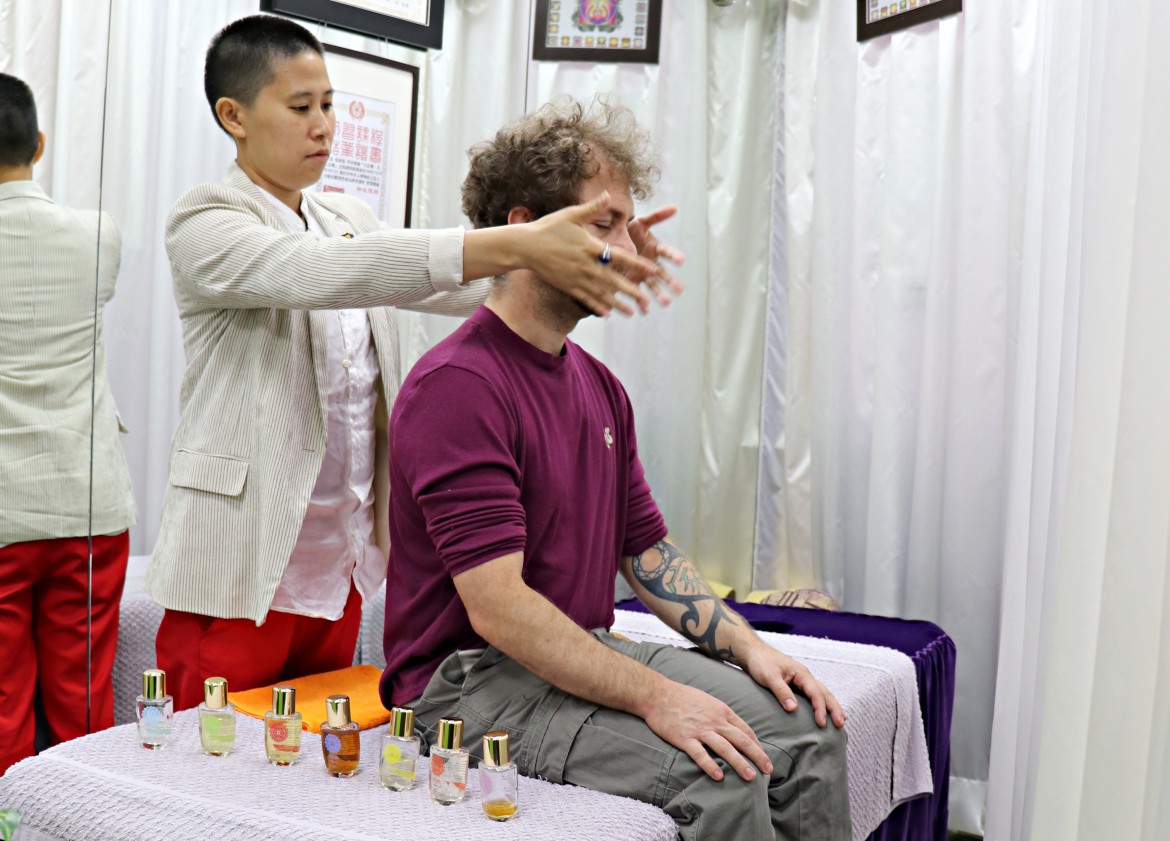
TS: I grew up in NYC, so for me, the West Village was always considered the real heart of New York’s gay community. What neighborhood can be considered the West Village of Taipei?
O: Taiwan is generally a pretty safe space insofar as same-sex couples being able to walk around holding hands and that sort of thing. When I was at Love Boat in the Shida neighborhood I thought that women seemed a bit more present in their display of affection, but after moving here to Ximending I’ve changed my assessment. I see gay guys holding hands all over Ximending, which makes sense as the neighborhood is traditionally thought of as the hub of Taipei’s gay community. Still, for the most part Taiwan is a very safe space for LGBTQ people.
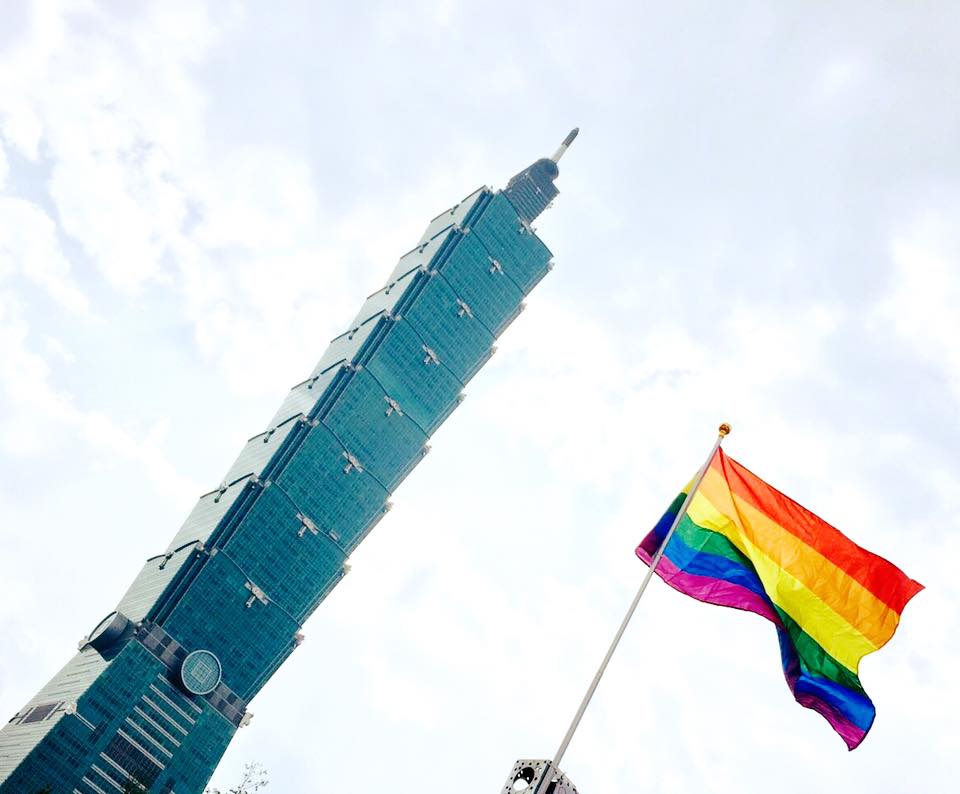
TS: Is there a divide between Taiwan’s gay and lesbian communities?
O: Not really. There’s no sense of who is leading, or who is taking charge. There’s a lot of love and compassion from all sides, with people doing what they can to support the community as a whole, towards the goal of having a safer, more compassionate place to live. I feel like gender roles here are a little more fluid then they may have been in the past in that people now have more freedom to explore their identities. As humans, we tend to have the habit of needing to label things.
TS: Gay, straight, bisexual, whatever?
O: Yes. These terms give us a sense of ownership, but it’s not about the labels. We exist more on a rainbow spectrum rather than a binary identity. It’s just a matter of what color light an individual shines.
TS: What are your feelings about the upcoming Pride Parade?
O: I’ll be going for sure. It’s a really important event, so we attend every year. Pride is for everyone, and it is a strong message that we have this annual celebration, to go back and appreciate where we’re going and how far we’ve come. But it’s important to remember that the festival isn’t just for the LGBTQ community. We recently had an incident in the shop that illustrates this. We do a series of readings, some of which are pretty specific to members of the LGBTQ community, issues like coming out and so forth. But our readings are definitely not exclusive to the LGBTQ community. Anyway, we were drafting up posters, and one of our tarot readers noted that we’d put “LGBTQ Tarot Readings” at the bottom. This led to a discussion in which we decided that even though we were making posters for the PRIDE event, we shouldn’t label our readings as “LGBTQ” or anything else. Because the readings are for everyone, not just the LGBTQ community.
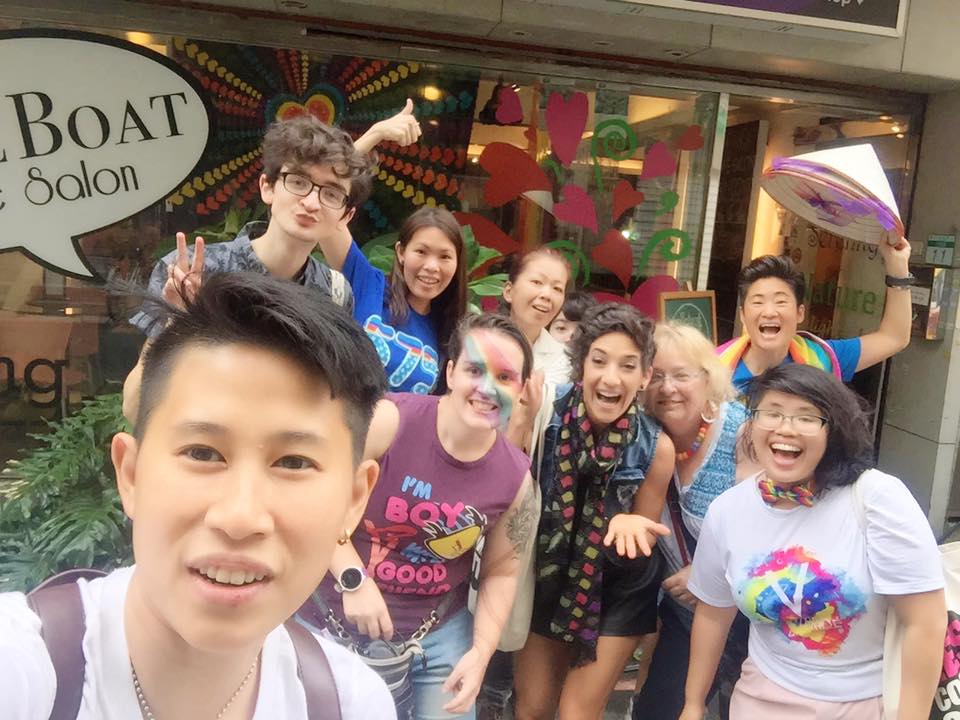
TS: Do you go back to the states much?
O: Mainly once a year, usually for Chinese New Year. I still consider Los Angeles an important place of my upbringing, but I feel like Taiwan is my home.
Follow Light Program Red House
Website: Light Program Red House
Facebook page: 光計劃紅樓 Light Program Red House
Location: No.13, Lane 10, Chengdu Road, Taipei, Taiwan

